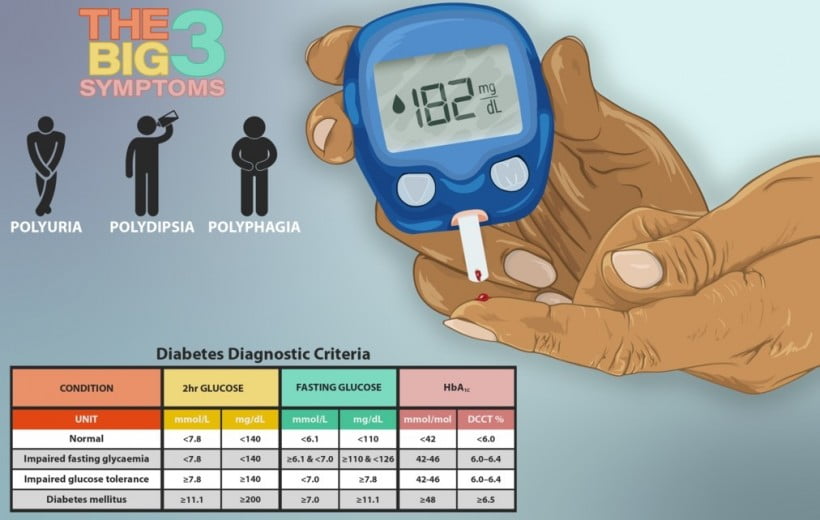Understanding The Common Type 1 And Type 2 Diabetes Medications
Warning: Undefined variable $post in /home/dietofli/public_html/wp-content/plugins/code-snippets/php/snippet-ops.php(584) : eval()'d code on line 3
Warning: Attempt to read property "ID" on null in /home/dietofli/public_html/wp-content/plugins/code-snippets/php/snippet-ops.php(584) : eval()'d code on line 3
The estimated reading time is 6 minutes
Warning: Undefined variable $post in /home/dietofli/public_html/wp-content/plugins/oxygen/component-framework/components/classes/code-block.class.php(115) : eval()'d code on line 3
Warning: Attempt to read property "ID" on null in /home/dietofli/public_html/wp-content/plugins/oxygen/component-framework/components/classes/code-block.class.php(115) : eval()'d code on line 3

Over the years, diabetes has become one of the most problematic health conditions in the world. It is estimated that more than 34 million Americans have diabetes. 88 million Americans have prediabetes. This is very frightening since diabetes is a costly disease that will turn the patient’s life upside down. It is pertinent to learn more about this condition so you can take care of it. By properly managing the condition, you can live a happy, healthy life and enjoy yourself.
If you don’t monitor and manage your diabetes, you’re going to run into a lot of problems. Just remember that there are numerous medications that can help. Within this in-depth guide, you will learn more about medications designed to combat type 1 and type 2 diabetes.
Diabetes Medication Adherence Tips
At the end of the day, taking your medication could make the difference between life and death. If you don’t take your medication, there is a risk that you’re going to run into serious problems. The good news is that there are numerous tips you can follow to avoid missing a dose. For starters, you should create a schedule. You’ll likely need to take your medication two or three times a day. Use a whiteboard to schedule this. Once you’ve done that, you can guarantee that you’ll never miss taking your pills.
Furthermore, you should think about using a mobile app. There are numerous apps that can help you keep track of your medication. These apps will remind you when you need to take your pills. You can also try using a pillbox. You don’t want to miss a dose because it could be dangerous. Take your medication and follow this advice to avoid problems. (1)
Common Medications
Before you can find out what medication you’ll need to take, you’ll need to receive a proper diagnosis. This means that you’ll need to get tested. There are numerous ways to diagnose diabetes. If you’re worried about type 2 diabetes, you should ask your doctor about an A1C or glycated hemoglobin test. This test will analyze your blood sugar level and determine what the average has been for the past few months. If your blood sugar levels have been higher than normal, you have diabetes.
If this test doesn’t work for you, you’ll need to get a random blood sugar test, fasting blood sugar test, or oral glucose tolerance test. Then, it is time to take advantage of the latest diabetes medications.
Metformin
When first diagnosed with type 2 diabetes, you’ll likely be prescribed Metformin. This medication is very effective for type 2 diabetics because it can lower glucose production in the liver. Furthermore, it will increase the body’s sensitivity to insulin. This makes it possible for the body to use insulin more effectively. The only downside is that this medication has some side effects. Diarrhea and nausea are common. As you get used to the medicine, there is a good chance that you’ll no longer experience these problems. (2)
GLP-1 Receptor Agonists
Your doctor may decide that GLP-1 receptor agonists are a good choice for you. This injected medication slows digestion while lowering blood sugar levels. When using this medication, you’ll likely lose weight. There are several medications that fit into this category. They include Exenatide, Semaglutide, and others. These medications will increase the user’s risk of developing pancreatitis.
Furthermore, nausea is one of the most common side effects.
Meglitinides
These medications stimulate the pancreas and force it to secrete more insulin. They act very quickly so their impact on the body will be shorter. While these medications are effective, they could create problems for the user. For instance, there is a risk that they’re going to lead to weight gain and low blood sugar. Still, they’re one of the best ways to quickly take control of your diabetes.
Sulfonylureas
These medications are designed to help the body secrete more insulin. Several medications fit into this category. They include Amaryl, Glucotrol, and Glynase. When using these medications, the patient needs to be very careful. They have several side effects such as lowering blood sugar and causing the user to gain weight.
Humalog
Type 1 diabetes patients should learn more about Humalog. Patients can learn more about this medication and others by visiting Canadian Insulin. Humalog is a fast-acting insulin that begins working only 15 minutes after it has been injected. It will reach peak performance in an hour and will remain active for 2 to 4 hours. This hormone helps lower the levels of glucose or sugar in the user’s blood.
Humalog is primarily used to control blood sugar levels in adults and children. It can be used to treat type 1 and type 2 diabetes. However, patients should speak to their doctors to find out which medication is best for them.
Lantus
Lantus is a man-made form of insulin. It has become a popular choice for patients dealing with diabetes. This medication can help lower glucose levels in the blood. One thing to note is that insulin glargine is a long-acting insulin. It will begin working a few hours after it has been injected and will remain active for 24 hours. It is a good option for patients who want to use one injection a day.
Lantus is suitable for adults and children. However, it is important to understand that some forms of insulin glargine can only be used by adults. Again, you should speak to your doctor to find out what will work best for you.
Staying Safe When Using Diabetes Medications
It is vital to stay safe when using diabetes medications. If you act haphazardly, there is a risk that you’re going to create more problems for yourself. If you’ve experienced a bout of low blood sugar levels, you should not use Lantus. People experiencing diabetic ketoacidosis should avoid this medication too. Remember that you should never share an injection pen with someone else. This is dangerous since it could lead to the transmission of HIV or hepatitis.
Be sure to follow your doctor’s orders when taking these medications.














